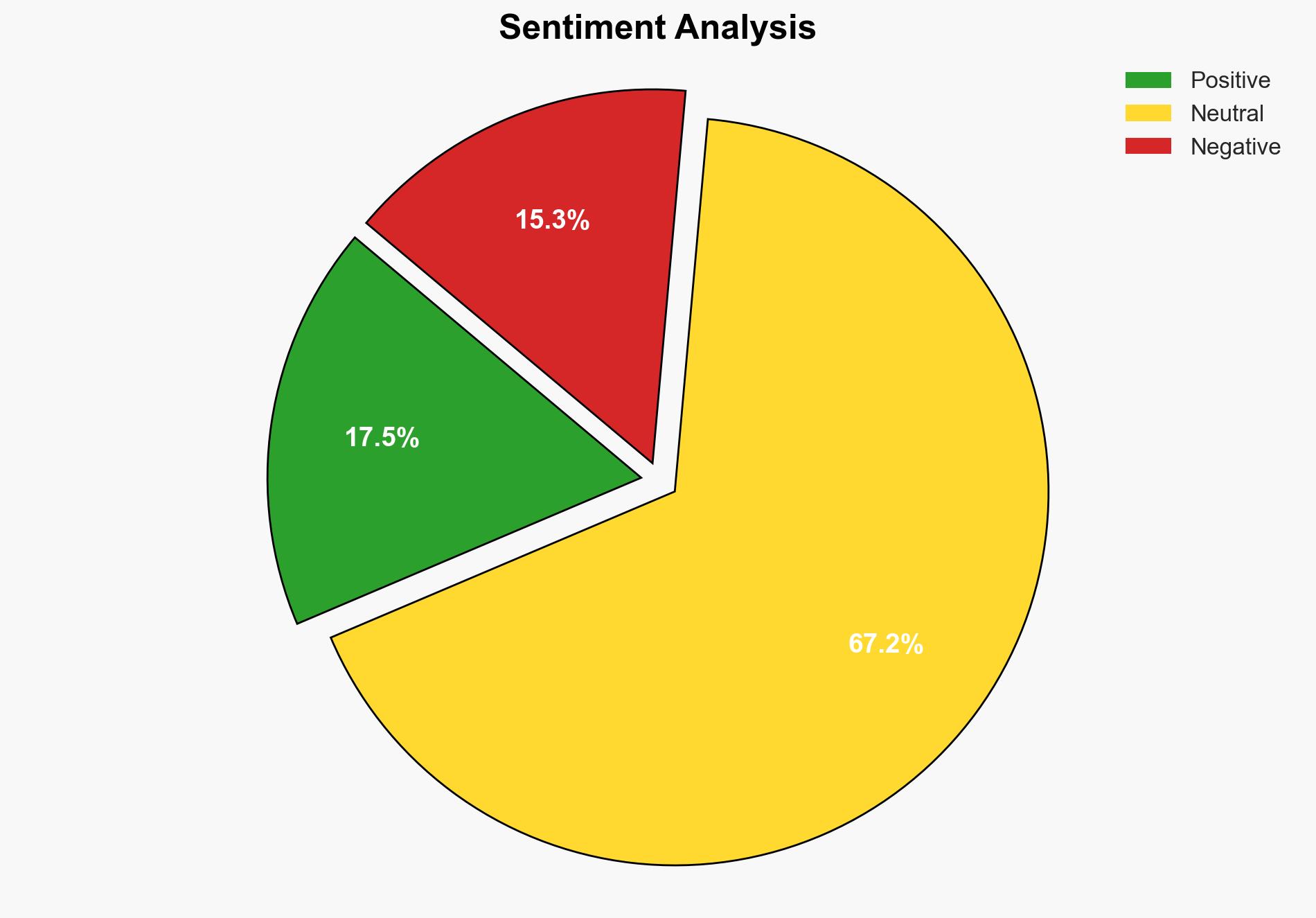Muslims in Middle East observe Ramadan amid political upheavals and postwar turmoil – Japan Today
Published on: 2025-03-02
Intelligence Report: Muslims in Middle East observe Ramadan amid political upheavals and postwar turmoil – Japan Today
1. BLUF (Bottom Line Up Front)
The observance of Ramadan in the Middle East is occurring under challenging circumstances marked by political upheavals and postwar turmoil. Key regions such as Syria and Gaza are experiencing significant socio-economic challenges. The ongoing instability poses risks to regional security and economic recovery. Immediate international engagement and support are recommended to facilitate reconstruction and humanitarian relief efforts.
2. Detailed Analysis
The following structured analytic techniques have been applied for this analysis:
SWOT Analysis
Strengths: Cultural resilience and community solidarity during Ramadan provide a foundation for social cohesion.
Weaknesses: Economic instability and widespread poverty hinder recovery efforts.
Opportunities: International aid and lifting of sanctions could accelerate reconstruction and economic revival.
Threats: Persistent political instability and security threats from militant groups.
Cross-Impact Matrix
Events in Syria and Gaza have the potential to influence neighboring regions. The political transformation in Syria could lead to shifts in power dynamics affecting Lebanon and Jordan. The fragile ceasefire in Gaza impacts Egypt’s border security and regional diplomatic efforts.
Scenario Generation
Best-Case Scenario: Successful international intervention leads to economic recovery and political stabilization.
Worst-Case Scenario: Escalation of conflicts results in further humanitarian crises and regional destabilization.
Most Likely Scenario: Continued political uncertainty with gradual economic recovery contingent on international support.
3. Implications and Strategic Risks
The ongoing instability in Syria and Gaza poses significant risks to regional stability and security. Economic challenges exacerbate humanitarian needs, potentially leading to increased migration and radicalization. The geopolitical landscape remains volatile, with potential impacts on global energy markets and international relations.
4. Recommendations and Outlook
Recommendations:
- Engage in diplomatic efforts to stabilize political situations and support ceasefire agreements.
- Facilitate humanitarian aid and reconstruction efforts by lifting economic sanctions where appropriate.
- Enhance regional cooperation to address security threats and promote economic partnerships.
Outlook:
Best-Case: Stabilization efforts lead to a gradual improvement in regional security and economic conditions.
Worst-Case: Continued conflict and economic decline result in a protracted humanitarian crisis.
Most Likely: Incremental progress with ongoing challenges requiring sustained international engagement.
5. Key Individuals and Entities
The report mentions significant individuals such as Bashar Assad and entities like Hayat Tahrir al-Sham. These individuals and groups play pivotal roles in the current political and security dynamics of the region.




